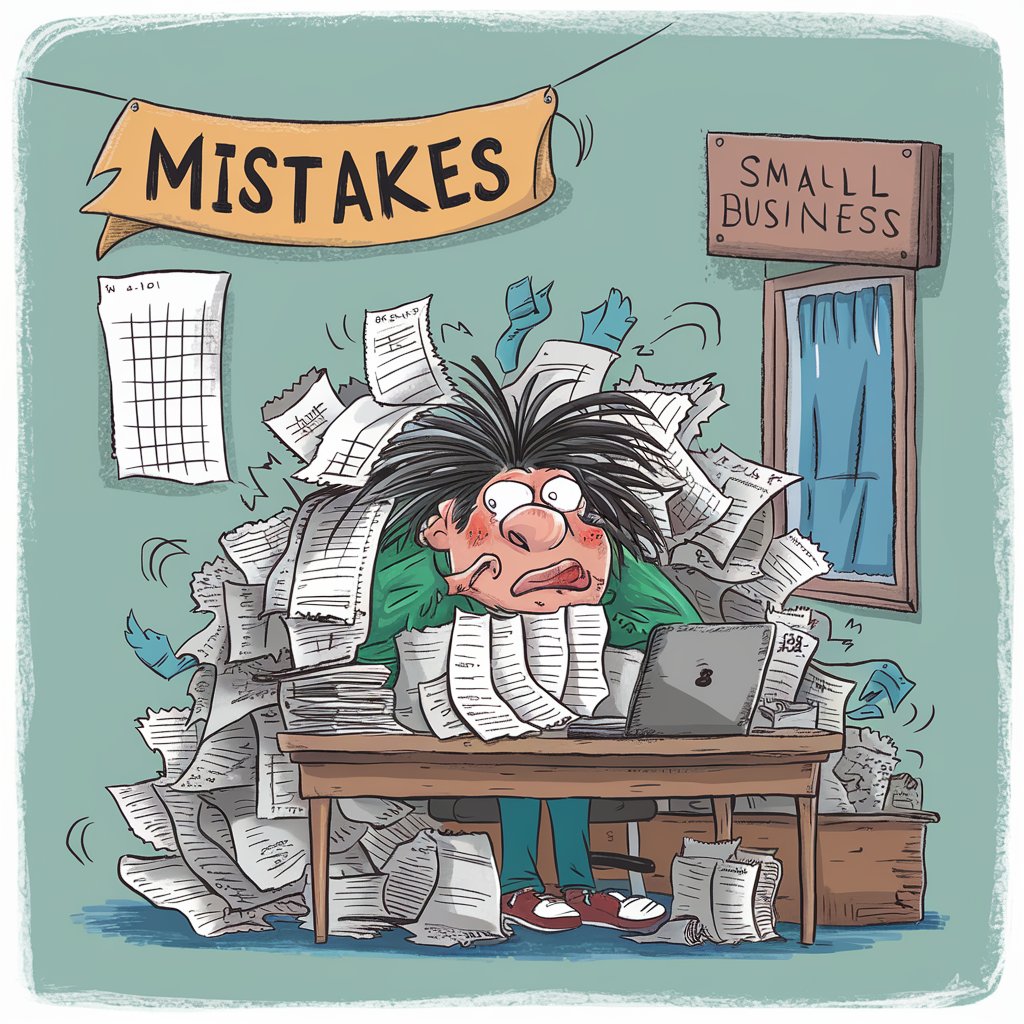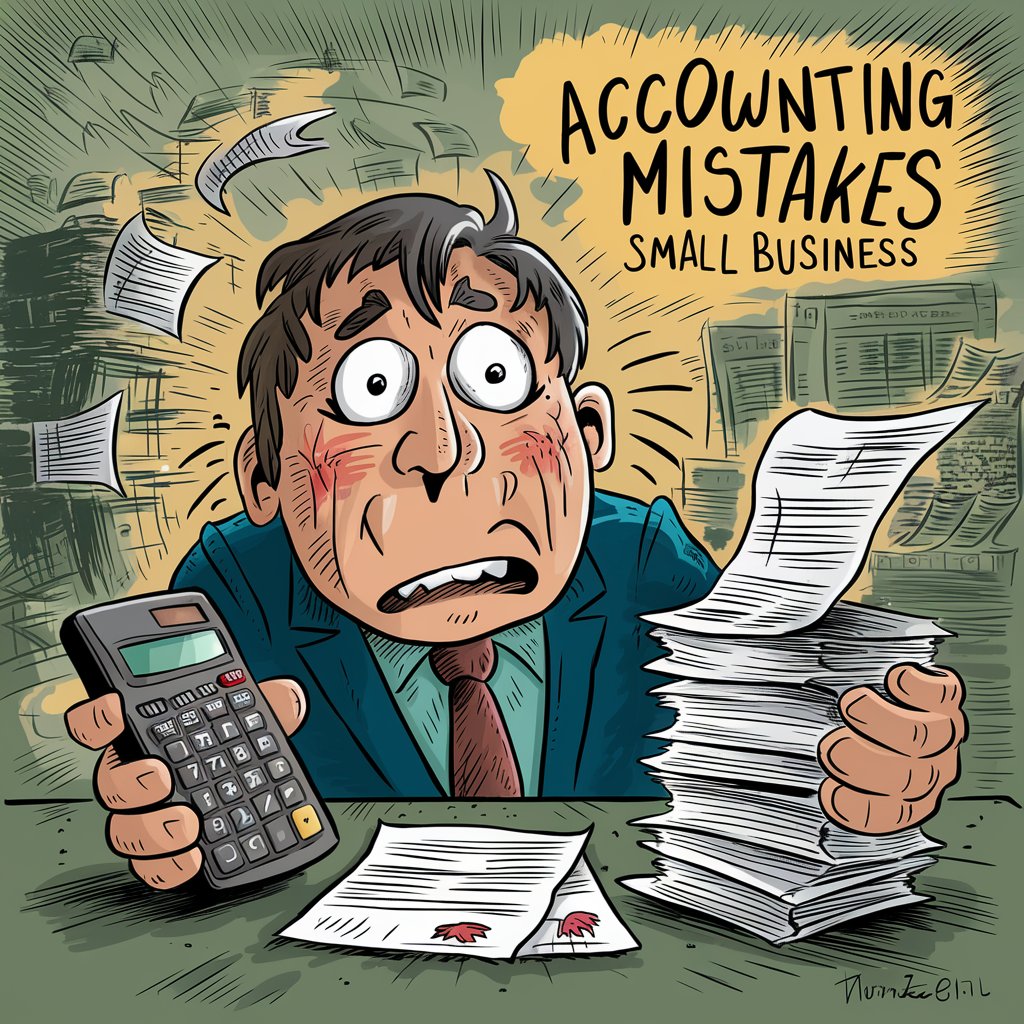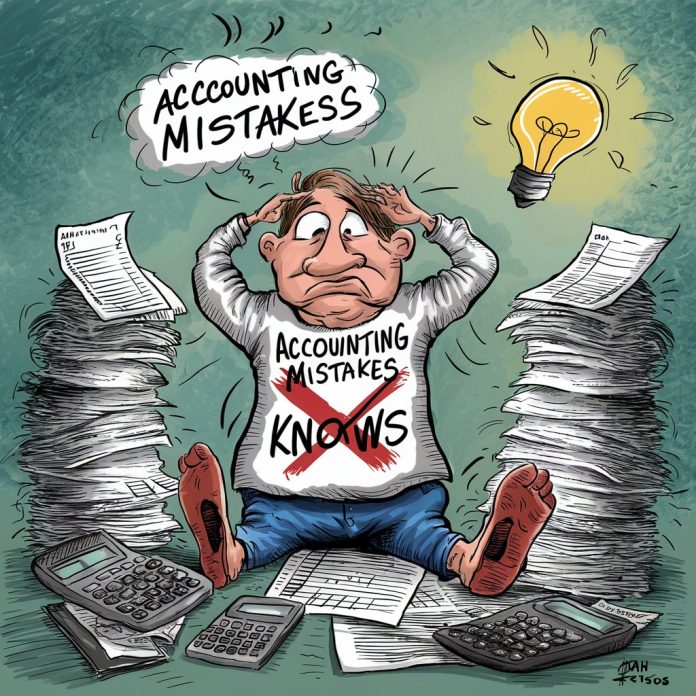Managing the finances of a small business can be challenging, especially for owners who wear many hats. Accounting mistakes, however, can be costly and time-consuming to rectify. Understanding and avoiding common pitfalls can save you from financial headaches and help your business thrive. In this article, we will explore the top five accounting mistakes small business owners should avoid and provide tips to help you maintain accurate and efficient financial records.
1. Mixing Personal and Business Finances
Why It’s a Problem
One of the most common mistakes small business owners make is mixing personal and business finances. This can lead to inaccurate financial records, complicate tax filings, and make it difficult to track business performance. Additionally, it increases the risk of personal liability in case of legal issues or audits.
How to Avoid It
- Open Separate Accounts: Maintain separate bank accounts and credit cards for personal and business use. This ensures that all business transactions are recorded accurately and independently.
- Use Accounting Software: Utilize accounting software that allows you to categorize and track business expenses separately from personal ones.
- Set a Salary: Pay yourself a regular salary or draw from the business account to maintain a clear distinction between personal and business finances.

2. Failing to Keep Accurate Records
Why It’s a Problem
Accurate and detailed record-keeping is essential for effective financial management. Incomplete or inaccurate records can lead to cash flow problems, incorrect tax filings, and poor financial decision-making.
How to Avoid It
- Consistent Recording: Record all financial transactions promptly and accurately. Use accounting software to automate and streamline the process.
- Retain Documentation: Keep all receipts, invoices, and financial documents organized and readily accessible. This not only ensures accuracy but also simplifies audits and tax preparation.
- Regular Reconciliation: Reconcile your bank statements and accounting records regularly to identify and correct discrepancies.
3. Ignoring Cash Flow Management
Why It’s a Problem
Cash flow is the lifeblood of any business. Poor cash flow management can lead to insufficient funds to cover expenses, missed opportunities, and even business failure. Many small business owners focus on profitability without considering cash flow, which can result in financial instability.
How to Avoid It
- Monitor Cash Flow: Regularly review your cash flow statements to track inflows and outflows. Identify patterns and potential issues early.
- Maintain a Cash Reserve: Set aside a portion of your revenue as a cash reserve to cover unexpected expenses and periods of low cash flow.
- Optimize Receivables and Payables: Encourage prompt payment from customers by offering incentives for early payments and implementing efficient invoicing practices. Negotiate favorable payment terms with suppliers to manage outflows.

4. Misclassifying Expenses
Why It’s a Problem
Misclassifying expenses can lead to inaccurate financial statements and tax filings. It may result in missed tax deductions or, worse, penalties and fines from tax authorities. Proper classification is essential for understanding your business’s financial health and making informed decisions.
How to Avoid It
- Use a Chart of Accounts: Establish a detailed chart of accounts tailored to your business. This ensures that all transactions are categorized correctly.
- Educate Yourself and Your Team: Understand the different types of expenses and their classifications. Provide training to your team to ensure consistency.
- Leverage Software: Utilize accounting software that allows you to create custom categories and provides guidance on expense classification.
5. Neglecting Tax Obligations
Why It’s a Problem
Tax compliance is critical for any business. Neglecting tax obligations can result in penalties, interest charges, and legal issues. Many small business owners underestimate their tax liabilities or fail to stay up-to-date with tax laws, leading to costly mistakes.
How to Avoid It
- Understand Your Tax Obligations: Familiarize yourself with the taxes applicable to your business, including income tax, sales tax, payroll tax, and others.
- Keep Up with Tax Law Changes: Stay informed about changes in tax laws and regulations that may impact your business.
- Hire a Professional: Consider hiring a tax professional or accountant to manage your tax filings and provide expert advice. This can help ensure compliance and optimize your tax strategy.
- Plan for Taxes: Set aside funds regularly to cover your tax liabilities. This prevents last-minute scrambles to find cash for tax payments.

Bonus Tips for Effective Accounting
Regular Financial Review
Conducting regular financial reviews helps you stay on top of your business’s financial health. Analyze financial statements, review key metrics, and adjust your strategies as needed. Regular reviews can identify trends, opportunities, and potential issues early.
Budgeting and Forecasting
Develop a budget and financial forecast to guide your business decisions. A budget helps control expenses and allocate resources effectively, while a forecast provides insights into future financial performance. Regularly compare actual performance against your budget and forecast to make informed adjustments.

Utilizing Technology
Leverage technology to streamline your accounting processes. Modern accounting software offers features like automated invoicing, expense tracking, and financial reporting. Cloud-based solutions provide access to your financial data from anywhere, enhancing flexibility and collaboration.
Professional Development
Invest in your financial literacy and that of your team. Attend workshops, webinars, and training sessions on accounting and financial management. Staying informed about best practices and industry trends can significantly improve your business’s financial operations.
Building a Strong Relationship with Your Accountant
Your accountant can be a valuable partner in managing your business finances. Maintain open communication, seek their advice regularly, and involve them in strategic planning. A strong relationship with your accountant ensures you receive timely and relevant financial insights.
Conclusion
Avoiding common accounting mistakes is crucial for the financial health and success of your small business. By keeping personal and business finances separate, maintaining accurate records, managing cash flow effectively, properly classifying expenses, and meeting tax obligations, you can build a solid foundation for your business’s financial management. Additionally, regular financial reviews, budgeting, leveraging technology, professional development, and a strong relationship with your accountant will further enhance your accounting processes.
Implement these strategies to streamline your accounting operations, reduce errors, and make informed decisions that drive your business forward. By prioritizing accurate and efficient accounting practices, you can focus on growing your business and achieving long-term success.
